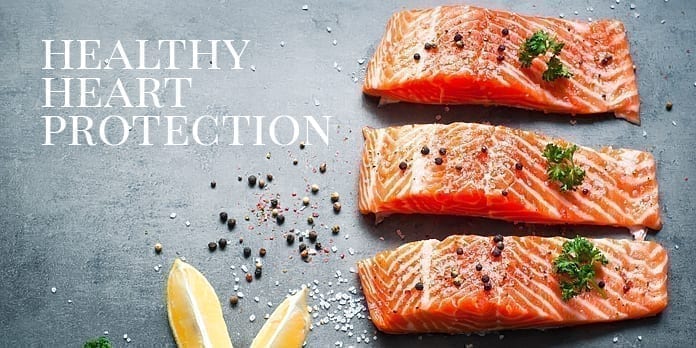Many women who eat fish for the healthy-heart protection of omega-3 fatty acids overlook that fish is very low in saturated fat and low in cholesterol. They focus on a 2006 Harvard study that found eating eight ounces of fish or seafood each week (the amount recommended by dietary guidelines) will cut the risk of dying of a heart attack by one-third. It’s good to know that you lower the risk of dying of a heart attack if you eat fish regularly compared to those who eat it less than once a month or not at all.
But take note that nutritionists say that fish, which can be leaner and lower in calories than meat, may also help in weight control. They say people who rely on seafood as part of a Mediterranean diet appear at lower risk for obesity compared to those who do not.
Compare a cooked four-ounce portion of cod to a grilled four-ounce portion of lean T-bone steak. The fish offers 26 grams of protein but contains only one gram of fat and 120 calories. The red meat compares with 28 grams of protein but more than doubles the calories with a count of 278. The steak also weighs in with a whopping 18 grams of fat.
It’s not just the fish and seafood ratio of fat and calories to protein that nutritionists love. Fish serves up nutrients such as vitamins A and D as well as B vitamins and comes loaded with minerals such as iron, iodine, selenium and zinc as well.
The human body more easily absorbs the iron in seafood than it takes in the iron from plants. The small bones in sardines are a good source of calcium. Shellfish comes packed with selenium, and saltwater fish provides high levels of iodine.
The total nutrient package is the reason nutritionists urge women who are pregnant or breast-feeding to consume up to 12 ounces of seafood every week for the health of their babies. The Food and Drug Administration warns women to avoid fish that’s high in methyl mercury such as swordfish, king mackerel, shark and tilefish. Albacore tuna is a good source of omega-3s, but the tuna comes with mercury. The FDA recommends pregnant and breast-feeding women limit consumption of tuna.
Good sources of omega-3s are oily, darker-fleshed fish such as salmon, anchovies, herring, sardines, shad, trout and mussels.




































